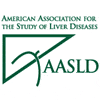 Janssen’s simeprevir, which is weeks from a likely approval in the United States, demonstrated greater efficacy than the current line of hepatitis C virus (HCV) treatments among those with genotype 1 of the virus and who had compensated liver disease. Representatives from the pharmaceutical company pooled analysis from three Phase III studies of the drug and presented the findings at the 64th Annual Meeting of the American Association for the Study of Liver Diseases (AASLD) in Washington, DC.
Janssen’s simeprevir, which is weeks from a likely approval in the United States, demonstrated greater efficacy than the current line of hepatitis C virus (HCV) treatments among those with genotype 1 of the virus and who had compensated liver disease. Representatives from the pharmaceutical company pooled analysis from three Phase III studies of the drug and presented the findings at the 64th Annual Meeting of the American Association for the Study of Liver Diseases (AASLD) in Washington, DC.
The QUEST-1 and QUEST-2 studies showed that 80 percent of treatment-naïve study participants who took simeprevir with pegylated interferon and ribavirin achieved a sustained virologic response (SVR, considered a cure) 12 weeks after completing treatment. This was in comparison with an SVR rate of just 50 percent among a group who received the regimen with a placebo in place of simeprevir.
In the PROMISE study, which looked at those who had relapsed after an earlier treatment attempt, 79 percent of the group achieved an SVR after taking the same regimen as the QUEST studies, compared with 37 percent of the study arm taking a placebo in place of simeprevir.
During the first 12 weeks of treatment with the regimen, the most common adverse side effects included fatigue, headache and flu-like illness.
To read a Janssen release on the studies, click here.
Advertisement
Advertisement
Advertisement






Comments
Comments